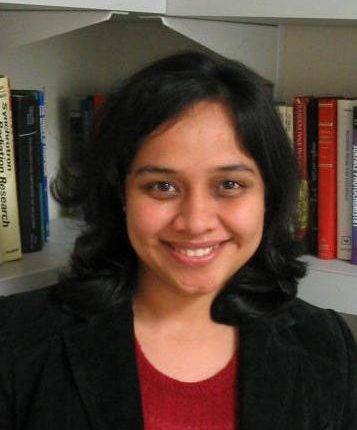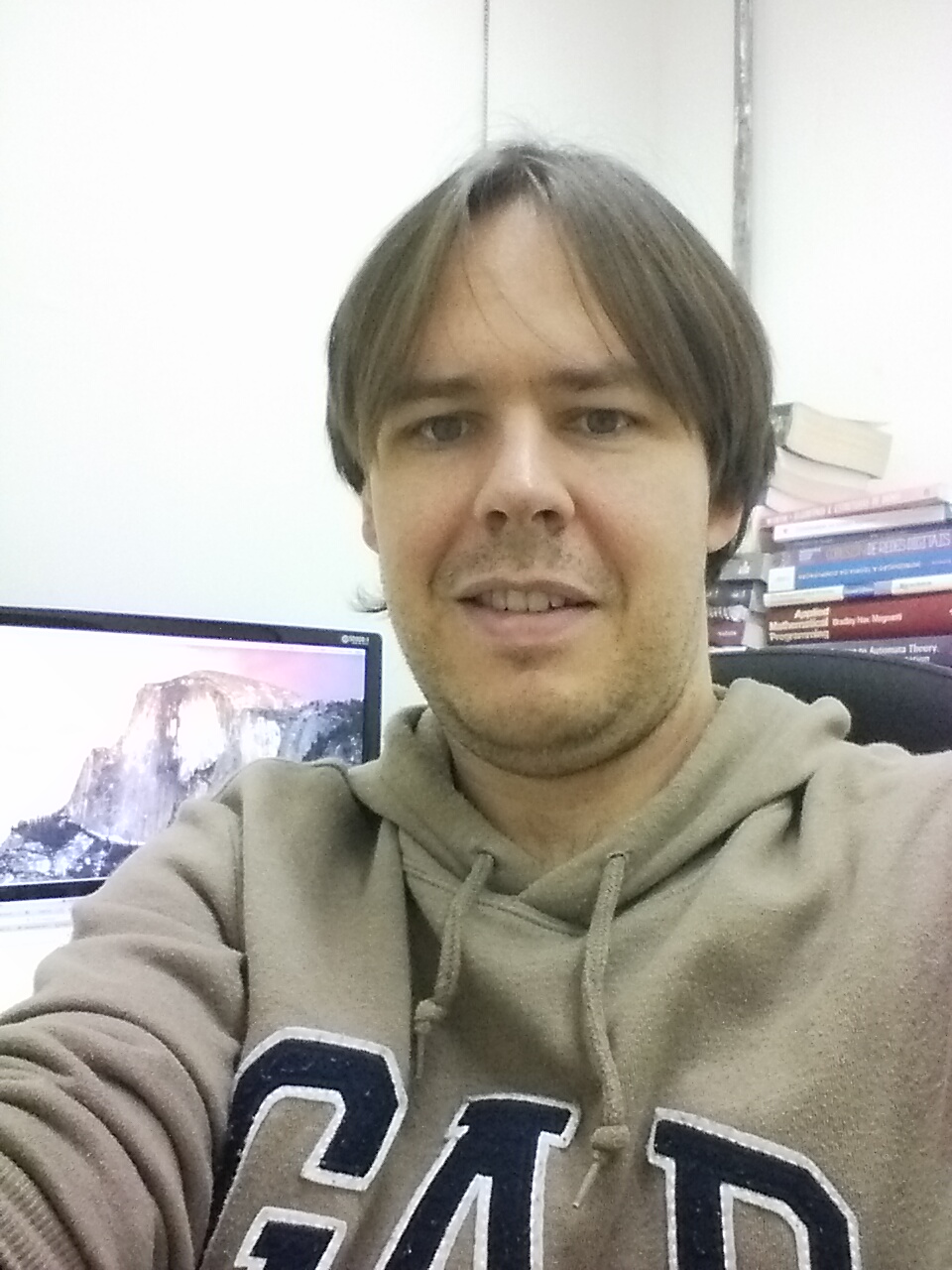Our Amazing Team
Help us building a more inclusive Open Souce Communities
Want to collaborate, send us a message!
It is often perceived to be about perspective, representation, tough conversation, and supporting inclusion.
It is ensuring that everyone has an equal opportunity to contribute to and influence every part and level of a workplace.
It was described as fairness, sameness, and valuing diversity and inclusion.
Want to collaborate, send us a message!
Marco Gerosa, Igor Wiese, Bianca Trinkenreich, Georg Link, Gregorio Robles, Christoph Treude, Igor Steinmacher, Anita Sarma
Abstract: Open Source Software (OSS) has changed drastically over the last decade, with OSS projects now producing a large ecosystem of popular products, involving industry participation, and providing professional career opportunities. But our field’s understanding of what motivates people to contribute to OSS is still fundamentally grounded in studies from the early 2000s. With the changed landscape of OSS, it is very likely that motivations to join OSS have also evolved. Through a survey of 242 OSS contributors, we investigate shifts in motivation from three perspectives: (1) the impact of the new OSS landscape, (2) the impact of individuals’ personal growth as they become part of OSS communities, and (3) the impact of differences in individuals’ demographics. Our results show that some motivations related to social aspects and reputation increased in frequency and that some intrinsic and internalized motivations, such as learning and intellectual stimulation, are still highly relevant. We also found that contributing to OSS often transforms extrinsic motivations to intrinsic, and that while experienced contributors often shift toward altruism, novices often shift toward career, fun, kinship, and learning. OSS projects can leverage our results to revisit current strategies to attract and retain contributors, and researchers and tool builders can better support the design of new studies and tools to engage and support OSS development.
Index Terms: open source, motivation, incentive
Mariam Guizani, Amreeta Chatterjee, Bianca Trinkenreich, Mary Evelyn May, Geraldine Jimena Noa, Liam James Russell, Griselda Cuevas Zambrano, Daniel Izquierdo-cortazar, Igor Steinmacher, Marco A. Gerosa, Anita Sarma
Abstract: Open source communities hosted in large foundations operate in a complex socio-technical ecosystem, which includes a heterogeneous mix of projects and stakeholders. Previous work has thus far investigated the challenges faced in OSS communities from the point of view of specific stakeholders, primarily at the level of individual projects. None have yet studied the challenges faced within a large, federated open source organization. In this paper, we aim to bridge this gap to identify ongoing challenges contributors face in a mature OSS organization. To do so, we surveyed 624 contributors at the Apache Software Foundation (ASF) and ran 11 semi-structured follow up interviews. We validated our findings through member checking with the interviewees as well as the ASF Diversity and Inclusion (D&I) committee. The contributions of this paper include: (1) an empirically-evidenced conceptual model of the 88 challenges that contributors face in a mature OSS foundation and (2) a set of 48 community-recommended strategies for alleviating these challenges. Our results show that even well-established and mature organizations still face a variety of individual and project-specific challenges and that it is difficult to design a comprehensive set of processes and guidelines to match the needs and expectations of a diverse and large federated community. Our conceptual challenges model and associated strategies to mitigate them can provide guidance to other OSS foundations and projects helping them in building better support processes and tools to create a successful, thriving community of contributors.
Index Terms: open source foundation; challenges; collaborative development
Igor Steinmacher, Sogol Balali, Bianca Trinkenreich, Mariam Guizani, Daniel Izquierdo-Cortazar, Griselda G. Cuevas Zambrano, Marco Aurelio Gerosa & Anita Sarma
Abstract: Mentoring is a well-known way to help newcomers to Open Source Software (OSS) projects overcome initial contribution barriers. Through mentoring, newcomers learn to acquire essential technical, social, and organizational skills. Despite the importance of OSS mentors, they are understudied in the literature. Understanding who OSS project mentors are, the challenges they face, and the strategies they use can help OSS projects better support mentors’ work. In this paper, we employ a two-stage study to comprehensively investigate mentors in OSS. First, we identify the characteristics of mentors in the Apache Software Foundation, a large OSS community, using an online survey. We found that less experienced volunteer contributors are less likely to take on the mentorship role. Second, through interviews with OSS mentors (n=18), we identify the challenges that mentors face and how they mitigate them. In total, we identified 25 general mentorship challenges and 7 sub-categories of challenges regarding task recommendation. We also identified 13 strategies to overcome the challenges related to task recommendation. Our results provide insights for OSS communities, formal mentorship programs, and tool builders who design automated support for task assignment and internship.
Index Terms: OSS, Mentors, Onboarding, Challenges, Task recommendation, Software engineering
Fabio Calefato, Marco Aurelio Gerosa, Giuseppe Iaffaldano, Filippo Lanubile, Igor Steinmacher
Abstract: Several Open Source Software (OSS) projects depend on the continuity of their development communities to remain sustainable. Understanding how developers become inactive or why they take breaks can help communities prevent abandonment and incentivize developers to come back. In this paper, we propose a novel method to identify developers’ inactive periods by analyzing the individual rhythm of contributions to the projects. Using this method, we quantitatively analyze the inactivity of core developers in 18 OSS organizations hosted on GitHub. We also survey core developers to receive their feedback about the identified breaks and transitions. Our results show that our method was effective for identifying developers’ breaks. About 94% of the surveyed core developers agreed with our state model of inactivity; 71% and 79% of them acknowledged their breaks and state transition, respectively. We also show that all core developers take breaks (at least once) and about a half of them (e45%) have completely disengaged from a project for at least one year. We also analyzed the probability of transitions to/from inactivity and found that developers who pause their activity have a e35 to e55% chance to return to an active state; yet, if the break lasts for a year or longer, then the probability of resuming activities drops to e21-26%, with a e54% chance of complete disengagement. These results may support the creation of policies and mechanisms to make OSS community managers aware of breaks and potential project abandonment.
Index Terms: Open-source communities, repository mining, retention, abandonment, turnover, disengagement
Hema Susmita Padala, Christopher Mendez, Felipe Fronchetti, Igor Steinmacher, Zoe Steine-Hanson, Claudia Hilderbrand, Amber Horvath, Charles Hill, Logan Simpson, Margaret Burnett, Marco Gerosa, Anita Sarma
Abstract: Previous research has revealed that newcomer women are disproportionately affected by gender-biased barriers in open source software (OSS) projects. However, this research has focused mainly on social/cultural factors, neglecting the software tools and infrastructure. To shed light on how OSS tools and infrastructure might factor into OSS barriers to entry, we conducted two studies: (1) a field study with five teams of software professionals, who worked through five use cases to analyze the tools and infrastructure used in their OSS projects; and (2) a diary study with 22 newcomers (9 women and 13 men) to investigate whether the barriers matched the ones identified by the software professionals. The field study produced a bleak result: software professionals found gender biases in 73% of all the newcomer barriers they identified. Further, the diary study confirmed these results: Women newcomers encountered gender biases in 63% of barriers they faced. Fortunately, many kinds of barriers and biases revealed in these studies could potentially be ameliorated through changes to the OSS software environments and tools.
Jefferson O. Silva, Igor Wiese, Daniel M.German, Christoph Treude, Marco A. Gerosa, Igor Steinmacher
Abstract: Several open source software (OSS) projects participate in engagement programs like Summers of Code expecting to foster newcomers’ onboarding and receive contributions. However, scant empirical evidence identifies why students join such programs. In this paper, we study the well-established Google Summer of Code (GSoC), which is a 3-month OSS engagement program that offers stipends and mentorship to students willing to contribute to OSS projects. We combined a survey (of students and mentors) and interviews (of students) to understand what motivates students to enter GSoC. Our results show that students enter GSoC for an enriching experience, and not necessarily to become frequent contributors. Our data suggest that, while stipends are an important motivator, students participate for work experience and the ability to enhance their resumés. We also discuss practical implications for students, mentors, OSS projects, and Summer of Code programs.
Keywords: Google summer of code, Motivation, Newcomers, Open source software
Jefferson O. Silva, Igor Wiese, Daniel M.German, Christoph Treude, Marco A. Gerosa, Igor Steinmacher
Abstract: Summer of code programs connect students to open source software (OSS) projects, typically during the summer break from school. Analyzing consolidated summer of code programs can reveal how college students, who these programs usually target, can be motivated to participate in OSS, and what onboarding strategies OSS communities adopt to receive these students. In this paper, we study the well-established Google Summer of Code (GSoC) and devise an integrated engagement theory grounded in multiple data sources to explain motivation and onboarding in this context. Our analysis shows that OSS communities employ several strategies for planning and executing student participation, socially integrating the students, and rewarding student’s contributions and achievements. Students are motivated by a blend of rewards, which are moderated by external factors. We presented these rewards and the motivation theory to students who had never participated in a summer of code program and collected their shift in motivation after learning about the theory. New students can benefit from the former students’ experiences detailed in our results, and OSS stakeholders can leverage both the insight into students’ motivations for joining such programs as well as the onboarding strategies we identify to devise actions to attract and retain newcomers.
Keywords: Motivation, Onboarding, Engagement, Mentoring, OSS, Process Theory, Summer of Code
Igor Steinmacher, Marco Gerosa, Tayana U. Conte & David F. Redmiles
Abstract: An influx of newcomers is critical to the survival, long-term success, and continuity of many Open Source Software (OSS) community-based projects. However, newcomers face many barriers when making their first contribution, leading in many cases to dropouts. Due to the collaborative nature of community-based OSS projects, newcomers may be susceptible to social barriers, such as communication breakdowns and reception issues. In this article, we report a two-phase study aimed at better understanding social barriers faced by newcomers. In the first phase, we qualitatively analyzed the literature and data collected from practitioners to identify barriers that hinder newcomers’ first contribution. We designed a model composed of 58 barriers, including 13 social barriers. In the second phase, based on the barriers model, we developed FLOSScoach, a portal to support newcomers making their first contribution. We evaluated the portal in a diary-based study and found that the portal guided the newcomers and reduced the need for communication. Our results provide insights for communities that want to support newcomers and lay a foundation for building better onboarding tools. The contributions of this paper include identifying and gathering empirical evidence of social barriers faced by newcomers; understanding how social barriers can be reduced or avoided by using a portal that organizes proper information for newcomers (FLOSScoach); presenting guidelines for communities and newcomers on how to reduce or avoid social barriers; and identifying new streams of research.
Keywords: Onboarding, Difficulties, Challenges, Joining, Socialization, Open source software, FLOSS, Social barriers, Entry, Newcomers, New contributor, Newbies, Beginners, Qualitative study, Online communities
Igor Steinmacher, Christoph Treude, Marco Aurélio Gerosa
Abstract: Many community-based open source software (OSS) projects depend on a continuous influx of newcomers for their survival and continuity, yet newcomers face many barriers to contributing to a project. We provide guidelines based on our previous work for both OSS communities and newcomers to OSS projects.
Sogol Balali, Igor Steinmacher, Umayal Annamalai, Anita Sarma & Marco Aurelio Gerosa
Abstract: Newcomers’ seamless onboarding is important for open collaboration communities, particularly those that leverage outsiders’ contributions to remain sustainable. Nevertheless, previous work shows that OSS newcomers often face several barriers to contribute, which lead them to lose motivation and even give up on contributing. A well-known way to help newcomers overcome initial contribution barriers is mentoring. This strategy has proven effective in offline and online communities, and to some extent has been employed in OSS projects. Studying mentors’ perspectives on the barriers that newcomers face play a vital role in improving onboarding processes; yet, OSS mentors face their own barriers, which hinder the effectiveness of the strategy. Since little is known about the barriers mentors face, in this paper, we investigate the barriers that affect mentors and their newcomer mentees. We interviewed mentors from OSS projects and qualitatively analyzed their answers. We found 44 barriers: 19 that affect mentors; and 34 that affect newcomers (9 affect both newcomers and mentors). Interestingly, most of the barriers we identified (66%) have a social nature. Additionally, we identified 10 strategies that mentors indicated to potentially alleviate some of the barriers. Since gender-related challenges emerged in our analysis, we conducted nine followup structured interviews to further explore this perspective. The contributions of this paper include: identifying the barriers mentors face; bringing the unique perspective of mentors on barriers faced by newcomers; unveiling strategies that can be used by mentors to support newcomers; and investigating gender-specific challenges in OSS mentorship. Mentors, newcomers, online communities, and educators can leverage this knowledge to foster new contributors to OSS projects.
Keywords:Challenges, Difficulties, Obstacles, Joining process, Onboarding, Mentor, Coach, Tutor, Newbie, Newcomer, Novice, Open source software
Igor Steinmacher, Gustavo Pinto, Igor Scaliante Wiese, Marco A. Gerosa
Abstract: Recent studies suggest that well-known OSS projects struggle to find the needed workforce to continue evolving—in part because external developers fail to overcome their first contribution barriers. In this paper, we investigate how and why quasi-contributors (external developers who did not succeed in getting their contributions accepted to an OSS project) fail. To achieve our goal, we collected data from 21 popular, non-trivial GitHub projects, identified quasicontributors, and analyzed their pull-requests. In addition, we conducted surveys with quasi-contributors, and projects’ integrators, to understand their perceptions about nonacceptance. We found 10,099 quasi-contributors — about 70% of the total actual contributors — that submitted 12,367 nonaccepted pull-requests. In five projects, we found more quasi-contributors than actual contributors. About one-third of the developers who took our survey disagreed with the nonacceptance, and around 30% declared the nonacceptance demotivated or prevented them from placing another pull-request. The main reasons for pull-request nonacceptance from the quasicontributors’ perspective were “superseded/duplicated pull-request” and “mismatch between developer’s and team’s vision/opinion.” A manual analysis of a representative sample of 263 pull-requests corroborated with this finding. We also found reasons related to the relationship with the community and lack of experience or commitment from the quasi-contributors. This empirical study is particularly relevant to those interested in fostering developers’ participation and retention in OSS communities.
Keywords:pull-requests, quasi-contributors, newcomers, open source software
Igor Steinmacher, Tayana Uchoa Conte, Christoph Treude, Marco Aurélio Gerosa
Abstract: Community-based Open Source Software (OSS) projects are usually self-organized and dynamic, receiving contributions from distributed volunteers. Newcomer are important to the survival, long-term success, and continuity of these communities. However, newcomers face many barriers when making their first contribution to an OSS project, leading in many cases to dropouts. Therefore, a major challenge for OSS projects is to provide ways to support newcomers during their first contribution. In this paper, we propose and evaluate FLOSScoach, a portal created to support newcomers to OSS projects. FLOSScoach was designed based on a conceptual model of barriers created in our previous work. To evaluate the portal, we conducted a study with 65 students, relying on qualitative data from diaries, self-efficacy questionnaires, and the Technology Acceptance Model. The results indicate that FLOSScoach played an important role in guiding newcomers and in lowering barriers related to the orientation and contribution process, whereas it was not effective in lowering technical barriers. We also found that FLOSScoach is useful, easy to use, and increased newcomers’ confidence to contribute. Our results can help project maintainers on deciding the points that need more attention in order to help OSS project newcomers overcome entry barriers.
Keywords:Newcomers; Newbies; Novices; Beginners; Open Source Software; Barriers; Obstacles; Onboarding; Joining Process
Gustavo Pinto, Igor Steinmacher, Marco Aurelio Gerosa
Abstract: Source code hosting websites (code forges) have recently changed to more social environments, and the contribution process evolved to the so-called pull-based development model. Due to the facilities brought by this evolution, Open Source Software (OSS) projects are now facing a high exposure, leading to an increasing number of contributors. However, not all these contributors want to have a long-term engagement with the project. In fact, popular projects are known to have a restricted set of core developers who drive the project, but now these projects count on a broad set of “not that involved” developers, which are responsible for a long tail of small contributions. In this paper, we shed the light on this important but overlooked set of developers: the casual contributors (also known as drive-by commits). First, we mined popular software repositories hosted on GitHub to investigate how common casual contributions are, and what are their characteristics. Second, we conducted two surveys with (1) the casual contributors and (2) the project maintainers aimed at understanding what motivates casual contributors and how they are perceived. Our results showed that although casual contributors are rather common (48.98% of the whole population of contributors in the projects analyzed), they are responsible for only 1.73% of the total number of commits. We also found that casual contributions are far from being trivial: even though a significant proportion of them are fixing typos and grammar issues (28.64%), we found several of them that have fixed bugs (30.20%), added new features (18.75%), and refactored code (8.85%). Still, we found that both casual contributors and project maintainers believe that casual contributions have more benefits than drawbacks. As a casual contributor said: “every bit helps”.
Anita Sarma, Marco Aurélio Gerosa, Igor Steinmacher, Rafael Leano
Abstract: Volunteers to Open Source Software (OSS) projects contribute not only to help create the software that they use, but also to gain skills and enrich their expertise and resumes. However, newcomers to OSS face several challenges when joining a project. Particularly, they do not know where to start, or choose tasks that they can be successful at. Our vision, BugExchange, is a system that curates tasks from OSS projects to help train newcomers. While evaluating and executing these tasks, newcomers can gain an understanding about the project, its technology, and concepts. There are many challenges in designing such a system. For example, identifying the information needs of newcomers, creating task recommendations that match newcomers’ skills and career goals, and providing mentoring and networking support. BugExchange has the potential to improve newcomer learning experiences, reduce dropouts, and foster community building.
Keywords:Newcomers; onboarding; open source projects; task labeling.
Igor Steinmacher, Tayana Uchôa Conte, Marco Aurélio Gerosa, David F. Redmiles
Abstract: Newcomers’ seamless onboarding is important for online communities that depend upon leveraging the contribution of outsiders. Previous studies investigated aspects of the joining process and motivation in open collaboration communities, but few have focused on identifying and understanding the critical barriers newcomers face when placing their first contribution, a period that frequently leads to dropout. This is important for Open Source Software (OSS) projects, which receive contributions from many one-time contributors. Focusing on OSS, our study qualitatively analyzed social barriers that hindered newcomers’ first contributions. We defined a conceptual model composed of 58 barriers including 13 social barriers. The barriers were identified from a qualitative data analysis considering different sources: a systematic literature review; open question responses gathered from OSS projects’ contributors; students contributing to OSS projects; and semi-structured interviews with 36 developers from 14 different projects. This paper focuses on social barriers and its contributions include gathering empirical evidence of the barriers faced by newcomers, organizing and better understanding these barriers, surveying the literature from the perspective of the barriers, and identifying new potential research streams.
Keywords:Onboarding; barriers; joining; open source software; newcomers; social barriers; entry; new contributor; barriers; socialization; qualitative study; open collaboration; online communities
Bianca Trinkenreich, Mariam Guizani, Igor Wiese, Tayana Conte, Marco Gerosa, Anita Sarma, Igor Steinmacher
Abstract: Success in Open Source Software (OSS) is often perceived as an exclusively code-centric endeavor. This perception can exclude a variety of individuals with a diverse set of skills and backgrounds, in turn helping exacerbate the current diversity & inclusion imbalance in OSS. Because one’s perspective of success can affect one’s personal, professional, and life choices, to support a diverse class of individuals we must first understand how OSS contributors understand success. Thus far, research has used a unidimensional, code-centric lens to define success. In this paper, we challenge this status quo to reveal OSS contributors’ multifaceted definitions of success. We do so through interviews with 27 OSS contributors whose communities recognize them as successful, and a follow-up open survey with 193 OSS contributors. Our study provides nuanced definitions of success perceptions in OSS, which might help devise strategies to attract and retain a diverse set of contributors, helping them attain their unique “pot of gold at the end of the rainbow”.
Index Terms: open source software, success, career, qualitative analysis
Igor Steinmacher, Sogol Balali, Bianca Trinkenreich, Mariam Guizani, Daniel Izquierdo-Cortazar, Griselda G. Cuevas Zambrano, Marco Aurelio Gerosa & Anita Sarma
Abstract: Mentoring is a well-known way to help newcomers to Open Source Software (OSS) projects overcome initial contribution barriers. Through mentoring, newcomers learn to acquire essential technical, social, and organizational skills. Despite the importance of OSS mentors, they are understudied in the literature. Understanding who OSS project mentors are, the challenges they face, and the strategies they use can help OSS projects better support mentors’ work. In this paper, we employ a two-stage study to comprehensively investigate mentors in OSS. First, we identify the characteristics of mentors in the Apache Software Foundation, a large OSS community, using an online survey. We found that less experienced volunteer contributors are less likely to take on the mentorship role. Second, through interviews with OSS mentors (n=18), we identify the challenges that mentors face and how they mitigate them. In total, we identified 25 general mentorship challenges and 7 sub-categories of challenges regarding task recommendation. We also identified 13 strategies to overcome the challenges related to task recommendation. Our results provide insights for OSS communities, formal mentorship programs, and tool builders who design automated support for task assignment and internship.
Index Terms: OSS, Mentors, Onboarding, Challenges, Task recommendation, Software engineering
This is collaborative project involving researchers from Oregon State University and Northern Arizona University funded by the National Science Foundation (NSF 1901031/1900903).
Open source is having a significant impact on society, in the products it produces and the career paths that it facilitates. However, women are vastly underrepresented among open source developers. This is a significant concern to these communities because it prevents them from receiving the benefits of a larger talent pool and of team diversity. The problem is perpetuated when women developers miss the learning and professional growth opportunities that open source software projects provide, and are overlooked when open source contributions are used to make hiring decisions. Our work will help break down these gender-bias barriers in tools and technology used in open source software. Our goal is to investigate how open source software tools and technologies have gender biases tied with diverse problem-solving styles, and how to remove any such biases. This work will harness foundational gender research to provide theory-based yet practical solutions and redesigns of open source software projects to address the underrepresentation of women. The redesigns and the process of creating inclusive tools will be empirically evaluated to create a compendium of "best practices" for fixing gender-bias bugs, in both products (what suitable fixes are to such bugs) and processes (how open source software teams can work together to fix gender-bias bugs). The GenderMag Method is a core piece of this project. We will conduct cognitive walkthroughs with open source software maintainers to uncover gender-bias bugs, and provide feedback to their teams so they can fix these issues.
This is collaborative project involving researchers from Oregon State University and Northern Arizona University funded by the National Science Foundation (NSF 1901031/1900903).
Open source is having a significant impact on society, in the products it produces and the career paths that it facilitates. However, women are vastly underrepresented among open source developers. This is a significant concern to these communities because it prevents them from receiving the benefits of a larger talent pool and of team diversity. The problem is perpetuated when women developers miss the learning and professional growth opportunities that open source software projects provide, and are overlooked when open source contributions are used to make hiring decisions. Our work will help break down these gender-bias barriers in tools and technology used in open source software. Our goal is to investigate how open source software tools and technologies have gender biases tied with diverse problem-solving styles, and how to remove any such biases. This work will harness foundational gender research to provide theory-based yet practical solutions and redesigns of open source software projects to address the underrepresentation of women. The redesigns and the process of creating inclusive tools will be empirically evaluated to create a compendium of "best practices" for fixing gender-bias bugs, in both products (what suitable fixes are to such bugs) and processes (how open source software teams can work together to fix gender-bias bugs). The GenderMag Method is a core piece of this project. We will conduct cognitive walkthroughs with open source software maintainers to uncover gender-bias bugs, and provide feedback to their teams so they can fix these issues.
This is collaborative project involving researchers from Oregon State University and Northern Arizona University funded by the National Science Foundation (NSF 1901031/1900903).
Open source is having a significant impact on society, in the products it produces and the career paths that it facilitates. However, women are vastly underrepresented among open source developers. This is a significant concern to these communities because it prevents them from receiving the benefits of a larger talent pool and of team diversity. The problem is perpetuated when women developers miss the learning and professional growth opportunities that open source software projects provide, and are overlooked when open source contributions are used to make hiring decisions. Our work will help break down these gender-bias barriers in tools and technology used in open source software. Our goal is to investigate how open source software tools and technologies have gender biases tied with diverse problem-solving styles, and how to remove any such biases. This work will harness foundational gender research to provide theory-based yet practical solutions and redesigns of open source software projects to address the underrepresentation of women. The redesigns and the process of creating inclusive tools will be empirically evaluated to create a compendium of "best practices" for fixing gender-bias bugs, in both products (what suitable fixes are to such bugs) and processes (how open source software teams can work together to fix gender-bias bugs). The GenderMag Method is a core piece of this project. We will conduct cognitive walkthroughs with open source software maintainers to uncover gender-bias bugs, and provide feedback to their teams so they can fix these issues.









